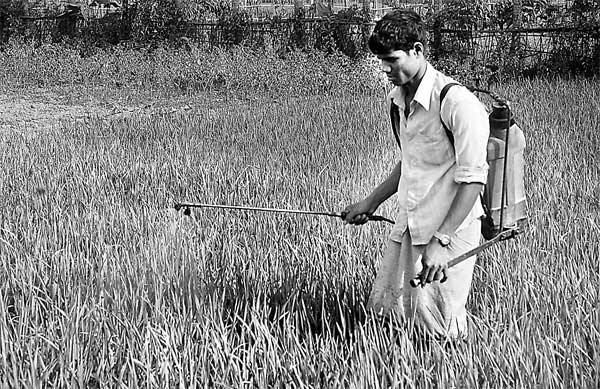Reply To:
Name - Reply Comment
Last Updated : 2024-04-24 19:15:00
 The protection of the food chain from possible contamination by toxic chemicals is a major challenge faced by many countries around the world. While the excessive use of toxic chemicals in agriculture continues to be a major public health issue, the spread of genetically-modified (GM) crops in countries like the USA has created considerable anxiety among consumers regarding the potential health risks posed by such agricultural produce. Increasing demand for food worldwide encouraged many countries to adopt modern industrial methods of farming that usually include the use of chemical fertilisers, pesticides and weedicides. Moreover, the post-harvest management of agricultural commodities that often involves agro-processing and use of chemicals for preservation and ripening of fruits at times poses serious health risks.
The protection of the food chain from possible contamination by toxic chemicals is a major challenge faced by many countries around the world. While the excessive use of toxic chemicals in agriculture continues to be a major public health issue, the spread of genetically-modified (GM) crops in countries like the USA has created considerable anxiety among consumers regarding the potential health risks posed by such agricultural produce. Increasing demand for food worldwide encouraged many countries to adopt modern industrial methods of farming that usually include the use of chemical fertilisers, pesticides and weedicides. Moreover, the post-harvest management of agricultural commodities that often involves agro-processing and use of chemicals for preservation and ripening of fruits at times poses serious health risks.

Add comment
Comments will be edited (grammar, spelling and slang) and authorized at the discretion of Daily Mirror online. The website also has the right not to publish selected comments.
Reply To:
Name - Reply Comment
US authorities are currently reviewing the manifest of every cargo aboard MV
On March 26, a couple arriving from Thailand was arrested with 88 live animal
According to villagers from Naula-Moragolla out of 105 families 80 can afford
Is the situation in Sri Lanka so grim that locals harbour hope that they coul